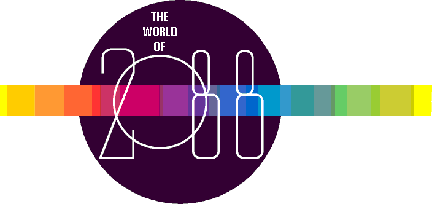

In 90 years, the UW freshman class will still be primarily 18 and 19 year olds. That means universities will still be dealing with people who are a critical developmental stage of life, who are open to learning, experimentation and growth; this will be reflected in the spirit of the university, regardless of any technological changes in the way we teach and learn. The way we parcel out knowledge could be quite different, but the central role of faculty as providers of information, who open doorways to students, will be much the same. Universities of the future will still carry on the traditions of the Enlightenment: that learning per se is valuable, and that it is important for the social good that it brings. The university will continue to be a place of inquiry an important force in the social and economic life of the state, as it is now.--Dean of Undergraduate Education Fred Campbell and Associate Vice Provost Louis Fox
Please Don't Call It High School
Restructuring of the formal educational delivery system will take place over the first quarter of the 21 century. Focused on family well-being and beginning with the pre-natal period, the first phase will provide guidance in child-rearing, nutrition, finance and the like through the nursery school years, concluding at age three or four. At this age, children will enter a phase that carries them in multi-age groups through what had been called kindergarten and the first two grades of school. Twenty children will be with the same teachers for four years--a team of interns, career teachers and specialists in the teaching of reading and mathematics, who also teach university courses in these fields to future teachers, thanks to school-university partnerships.
The next two phases--four years each--bring students to the end of their elementary and secondary school years at the age of 16. By beginning earlier, smoothing out the transitions from nursery schools to kindergarten to more formal schooling, ensuring a full and comprehensive curriculum in the major domains of knowledge, connecting to the array of information networks, and leaving teachers more time for individual tutoring, most students will graduate at 16 with an education comparable to 18-year-olds of an earlier era.
They then will go on to a four-year phase (conducted under what had once been community colleges) that combine community service, career education, training in a variety of hands-on technical skills, and approximately two years of general education. This is where schooling will end for most young people--at an average age of 20 and with a college degree.--Education Professor Emeritus John Goodlad
Academia and Private Industry Will Become Much Closer
For one, the community will have a different perspective on us. Right now, they see us mostly as teachers, but the community will begin to see us more as an engine for technological advancement. The business world is looking at us earlier and earlier and they are increasingly willing to take risks on early research. We're going to see a lot more researchers becoming entrepreneurs. Academia and private industry will never become the same, but we will be working much closer together.-- Director of Industry Relations John DesRosier, UW School of Medicine
Trading a Book for a Personal Display Device
The world of libraries and information 90 years hence will be more of what we have now--more libraries and more information--with highly sophisticated tools to organize and retrieve information. Libraries still will exist and will be more numerous but perhaps smaller. They will serve as community and university intellectual centers with instruction and assistance in information retrieval, advisory and reference services, and will contain collections of unique, original. physical objects--such as books and manuscripts--and digital archives to preserve and authenticate information objects. Each person will have a computerized information agent to scan the global databases for information relevant to his/her interests. Highly selected information may be downloaded directly to the brain through neurolinks. Books will have been replaced by the latest work downloaded from the network to your hand-held personal display device which will feature very high resolution display and be even more readable than a book. It will be possible to curl up with your digital book for a cozy read on a rainy day, latte in hand!--UW Libraries Director Betty Bengtson
Predictions Links:
Send a letter to the editor at columns@u.washington.edu.